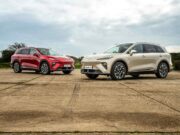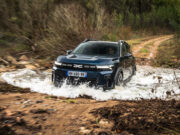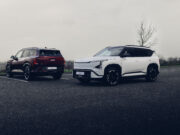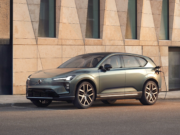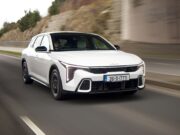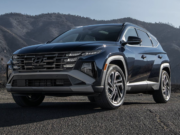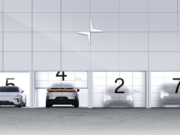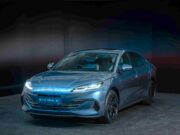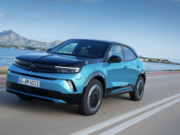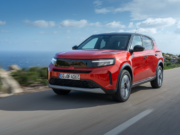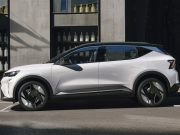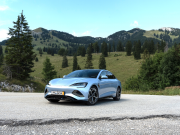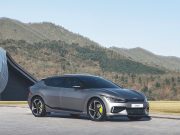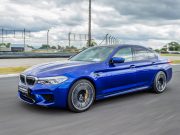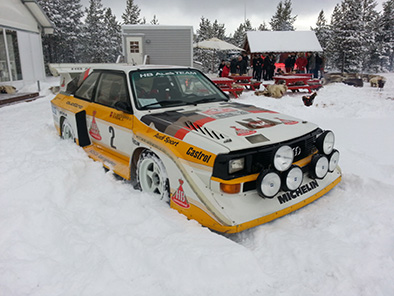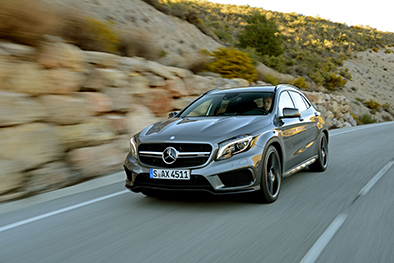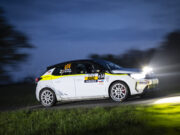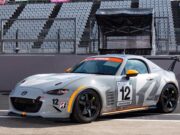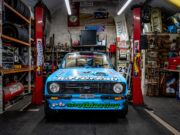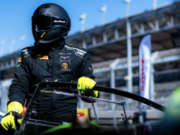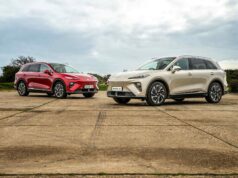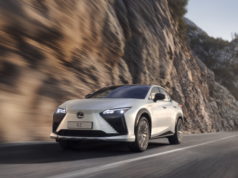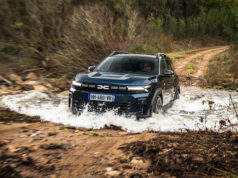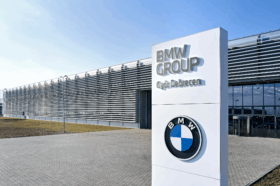
During the recent IAA Mobility event held in Munich, BMW took the opportunity to whisk a select group up to Hungary for tour of the new Debrecen plant. Sitting on more than 400 hectares on the edge of Hungary’s second-largest city it has been engineered from day one for a single purpose, to build the all-electric Neue Klasse generation! The first model out of Debrecen will be the new BMW iX3 which we will be sending some more time with. With series production scheduled to begin in late 2025 and a phased ramp-up thereafter, the pre-series vehicles started running down the production lines back in November 2024 marking a key milestone BMW’s next generation vehicle.
After an initial welcome evening and tour of Debrecen city we got to visit the heartbeat plant for the Neue Klasse in Europe. BMW’s overarching production concept iFACTORY: “Lean. Green. Digital.” is on show here more extensively than anywhere else. “Lean” translates into short, logical material flows and a layout that reduces internal transport time; “Digital” means pervasive use of simulation, data, and automation to stabilise quality; and “Green” is where Debrecen breaks new ground versus traditional car plants.
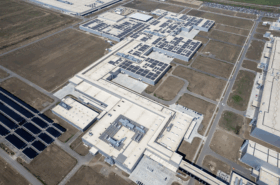
The headline sustainability fact is simple but rare, during normal operation the plant is designed to run without fossil fuels. This commitment is most visible in the paint shop where historically it would be one of the most energy-intensive and gas-hungry areas of a vehicle factory! Debrecen’s paint operations forgo conventional gas burners in favour of power-to-heat systems and integrate an internal heat grid and regenerative thermal oxidation (eRTO) to capture and reuse energy from exhaust streams. The result is a paint shop that eliminates direct fossil fuel use altogether and at any one time, up to 30 vehicles can be curing in this heat controlled conveyor consuming purely sustainable energy.
Electrification isn’t just about the car on the line either, it’s about the battery chain, too. Debrecen integrates high-voltage battery assembly on the same campus as the vehicle plant, cutting logistics emissions and time. This facility prepares packs using BMW’s sixth-generation round cells for the Neue Klasse, designed to boost energy density while lowering costs. BMW lifted total investment for Debrecen (including the battery assembly addition) to “more than €2 billion” by the end of 2025, signalling the company’s intent to localise critical EV components alongside vehicle production.
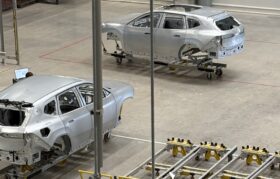
Capacity also matters to BMW and in a competitive EV market the company has been open about the plants trajectory with the ability to ramp up gradually aligned with the Neue Klasse rollout. Earlier expectations pointed to an annual capacity around 150,000 vehicles a typical figure for a compact, single-model European plant with room to flex as the lineup broadens. The key point is the modularity in the Debrecen’s plant buildings and the internal logistics that are planned to scale as the model mix evolves.
Digitally, Debrecen is a showcase for whats known as BMW’s “digital twin” approach. Before hardware ever moved, the entire production flow from body shop framing cells to final assembly torque programs was modelled and stress-tested virtually. That lets engineering teams validate ergonomics, cycle times, and quality gates in simulation, then transfer those parameters to the real line to shorten ramp-up and reduce rework. When test builds began in late 2024, much of the debugging had already happened in the virtual world, allowing a smoother path to production!
During various workshops along the tour, we got to see how the plant’s layout follows a logic baked into Neue Klasse. Body-in-white uses highly automated joining methods suitable for mixed-material structures, paint eliminates gas dependency, and the final assembly is tuned for battery-underbody marriage with precision alignment and extensive end-of-line diagnostics. The various materials used to make each vehicle are handled by classic tugger trains with autonomous systems, all controlled by a central production room that monitors buffer stocks and makes adjustments in real time. The guiding principle appears to be shortening distance, fewer meters per part, fewer handovers, and fewer chances for errors to enter the system.
BMW were also keen to point out that sustainability extends beyond energy! By positioning battery assembly on site and sourcing cells designed for higher recycled content in key materials (cobalt, lithium, nickel), the Neue Klasse aims at a meaningful lifecycle CO₂ reduction. BMW’s own lifecycle disclosures for the iX3 (Neue Klasse) point to substantial footprint gains versus predecessors, and independent coverage of the model launch echoes the claim that the new architecture will deliver a major efficiency step while cutting manufacturing emissions. Debrecen, as the first plant built in this manner, becomes the physical example of that ambition.
We also got to learn about the regional ecosystem around Debrecen and how it is also gearing up. While BMW’s battery assembly is on campus, Hungary is simultaneously attracting large-scale cell manufacturing in the Debrecen area most notably CATL’s separate cell plant which goes some way to explain why BMW placed the Neue Klasse hub here. With proximity to many suppliers reducing logistics risk and cost for Europe-bound EVs it was a no brainer. This philosophy stands to BMW’s long-standing “production follows the market” mantra. Where possible, build electric cars close to European customers, with local supply chains!
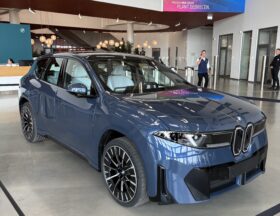
As mentioned previously product-wise, Debrecen launches with the new iX3, the first of the Neue Klasse family. BMW has confirmed the iX3 50 xDrive as the inaugural variant, rolling off the Debrecen line from autumn 2025, with next-gen eDrive technology and an 800-volt system. For the plant, this means commissioning end-of-line high-voltage test benches capable of rapid diagnostic cycles and safe energy handling another difference from ICE factories that retrofitted EV capability later. As further Neue Klasse derivatives arrive, Debrecen’s standardised stations and software-defined tooling are designed to switch over with minimal hardware change.
In practical terms for Hungary and the city of Debrecen, the project represents a long-term industrial anchor. Beyond direct employment at BMW and the on-site battery facility, a supplier park and logistics providers plug in around the plant, creating a regional EV corridor. Even with conservative phasing, the capital outlay raised past €2 billion with the battery assembly addition shows true staying power. And because the factory is fossil-free in normal operation, the environmental impact typical of normal auto plants are sharply reduced, improving the ability to operate in a growing city region.
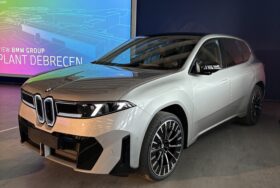
All told, what makes Debrecen “state of the art” isn’t any one robot, paint booth, or torque tool. It’s the way the entire system is configured for an EV-only future, energy without fossil fuels, battery assembly on site, a digital backbone that minimises ramp-up risk, and physical flows designed around the specifics of electric architecture. As the Neue Klasse becomes BMW’s core in Europe, Debrecen is both the proving ground and the template for a lean, green, and digital by design future! If you want a snapshot of where automotive manufacturing is going in this decade, it’s here, in Hungary, where the first production Neue Klasse models begin their run and the next phase of BMW’s electrification becomes very real.
Nevo’s Top Five BMW Plant Debrecen Takeaway Facts:
- Site size & Workforce: The plant sits on a 400-hectare greenfield site and as of our visit, there were nearly 3000 with hiring ongoing.
- Trees & Shrubs: More than 8,000 trees have been planted with plans to exceed 10,000 as the program continues. Landscaping includes 6,500 shrubs, plus 1,000+ dwarf hortensia shrubs repurposed from Debrecen’s Flower Festival to the factory grounds and local institutions.
- Wildflower Meadows & Biodiversity: About 85 hectares are dedicated to wildflower meadows and habitats, the site also integrates bees and even sheep for ecological management.
- Solar Park Scale: The on-site photovoltaic park covers 50 hectares with 71,000 panels, rated at 43 MW and expected to generate enough to power 20,000 households.
- Fossil-Free Operation: During normal operation, Debrecen is BMW’s first car plant to run entirely on renewable electricity with no fossil fuels used.


